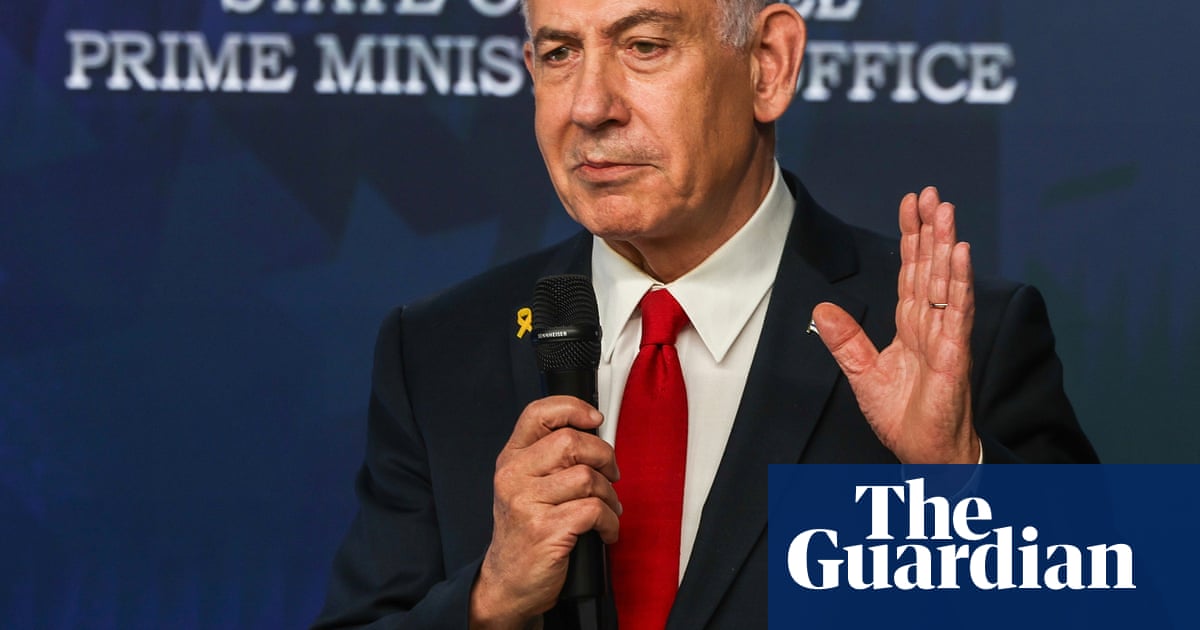The article highlights the escalating tensions between Israel and Western leaders, particularly as Benjamin Netanyahu accuses the leaders of Britain, France, and Canada of enabling Hamas through their calls for a ceasefire and increased humanitarian aid in Gaza. This situation reflects a broader conflict narrative and aims to shape public perception regarding international involvement in the Israeli-Palestinian conflict.
Intent Behind the Article
Netanyahu's comments serve to rally domestic and international support for Israel's military actions by framing criticism from Western leaders as siding with terrorists. This narrative aims to consolidate support for his government's policies and position, especially in light of recent violence against Israeli diplomats. By portraying the leaders' calls for humanitarian aid as detrimental to Israel's security, Netanyahu seeks to justify ongoing military operations in Gaza.
Public Perception and Messaging
The article seems targeted at reinforcing a specific narrative that portrays Israel as a victim surrounded by hostile forces. By emphasizing the direct threat from Hamas and labeling critics as unjust, the article aims to cultivate a sense of urgency and solidarity among Israelis and supporters of Israel globally. This framing may also seek to diminish the impact of international criticism on Israel's actions.
Possible Omissions or Concealed Information
The focus on Netanyahu's perspective may obscure the complexities of the humanitarian situation in Gaza and the historical context of the Israeli-Palestinian conflict. By not addressing the reasons behind humanitarian calls from Western leaders, the article may sidestep discussions about civilian suffering and international law, which could lead to a more balanced understanding of the situation.
Manipulative Elements
The article has a manipulative tone, particularly in its language choices, such as labeling opposing leaders as “on the wrong side of justice.” This rhetoric serves to vilify dissent and rally support for Netanyahu’s stance without engaging in a nuanced discussion of the conflict. The framing of opposition as a betrayal of justice can polarize opinions and solidify existing biases.
Relation to Other News
This coverage aligns with a larger trend of heightened rhetoric surrounding the Israeli-Palestinian conflict, particularly in the context of recent escalations. By comparing this article to similar reports, one can observe a pattern of framing that emphasizes security over humanitarian concerns, possibly reflecting a broader media narrative.
Impact on Society, Economy, and Politics
In the aftermath of such articles, one could anticipate increased polarization within public opinion regarding Israel and Palestine, potentially influencing political discourse and policy decisions in the UK and other allied nations. Economic implications may arise from shifts in public sentiment, affecting trade agreements and international relations.
Supportive Communities
The article likely resonates more with pro-Israel communities, particularly those that emphasize security and defense against terrorism. It may also appeal to those who view military action as a justified response to existential threats, thus reinforcing existing support bases for Netanyahu.
Market Reactions
While the article may not have immediate direct implications on stock markets, it could influence sectors related to defense and security. Companies involved in military contracts or international relations may see shifts in investor confidence depending on public sentiment regarding the conflict.
Geopolitical Context
In the broader context of global power dynamics, this article reflects ongoing tensions between Western nations and Middle Eastern politics. The framing of the conflict can influence international relations and diplomatic efforts, especially concerning humanitarian aid and military support.
Use of AI in Writing
There is no clear indication that AI was used in drafting this article. However, AI tools could potentially aid in generating language that emphasizes specific narratives or sentiments. If AI were involved, it might have influenced the framing of Netanyahu's statements to enhance emotional appeal through persuasive language.
This analysis indicates that the article is designed to elicit a specific response from readers, framing Netanyahu's narrative in a manner that seeks to strengthen support for Israeli military actions while vilifying international criticism. The reliability of the article is questionable due to its one-sided perspective and lack of engagement with opposing viewpoints.
